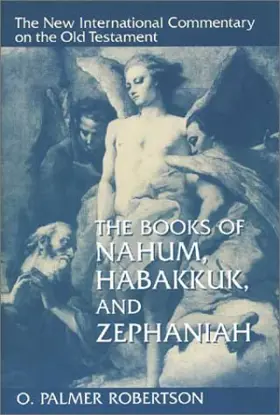

The Books of Nahum, Habakkuk, and Zephaniah
in New International Commentary on the Old Testament
Pages
384
Publisher
Eerdmans
Published
1/1/1990
ISBN-13
9780802825322
Collections
This book appears in the following featured collections.
- Recommended OT Commentaries by Denver Seminary Journal
- Essential OT Commentaries for a Preacher's Library by Derek W. H. Thomas
- Basic Library Booklist by Detroit Baptist Theological Seminary
- Building an OT Commentary Library by Invitation to Biblical Interpretation (Kostenberger & Patterson)
Reviews
O. Palmer Robertson's NICOT is probably my favorite Habakkuk commentary in terms of theology. His theological reflections are probing and get enough time to explore the issues, with more time than any of the other commentaries on the list given to the task of simply reflecting on what the text means for Habakkuk's view of God and Habakkuk's view of faith in God. It's much weaker on linguistic matters, sometimes not even addressing important issues that most of the other commentaries will spend some time on. It doesn't get first place primarily for that reason.
His perspective is conservative, evangelical, and explicitly Reformed. His expertise is in covenant theology, and he has a keen eye for seeing New Testament connections, although on occasion I think he reads a NT perspective into a text that may not have originally gone quite so far. I appreciated his willingness to defend Paul's appropriation of the justification by faith text in ch.2, although I found him too eager to rule out the possibility that faith and faithfulness are both in mind. It's a shame that Eerdmans has contracted a replacement for his commentary in this series this early, though Thomas Renz will probably produce a good commentary that will give more detail on the things Robertson doesn't focus much on.
[Full Review]
Readers of this blog will notice that my top 5 suggestions for Zephaniah commentaries are identical to my top 5 suggestions for Nahum and Habakkuk commentaries. As mentioned previously, Robertson is very helpful at explaining the larger theological themes found within these books. Highly recommended.
[Full Review]
Readers of this blog will notice that my top 5 suggestions for Habakkuk commentaries is identical to my top 5 suggestions for Nahum commentaries. As mentioned previously, Robertson is very helpful at explaining the larger theological themes found within these books. Highly recommended.
[Full Review]
The best commentary on the Book of Nahum is the volume in the NICOT series by O. Palmer Robertson. Like most of the commentaries in this series, it is written from a more conservative perspective and is very accessible. Robertson is also very helpful at explaining the larger theological themes found within the book. Highly recommended.
[Full Review]
A masterfully done commentary. Nicely weds a redemptive-historical hermeneutic with a pastor's touch.
A masterfully done commentary. Nicely weds a redemptive-historical hermeneutic with a pastor's touch.
A masterfully done commentary. Nicely weds a redemptive-historical hermeneutic with a pastor's touch.
O. Palmer Robertson's NICOT (1990) is probably my favorite Nahum commentary in terms of theology. His theological reflections are probing and get enough time to explore the issues, with more time than any of the other commentaries on the list given to the task of simply reflecting on what the text means for Nahum's view of God and its implications for life. It's much weaker on linguistic matters, sometimes not even addressing important issues that most of the other commentaries will spend some time on. It doesn't get first place primarily for that reason.
His perspective is conservative, evangelical, and explicitly Reformed. His expertise is in covenant theology, and he has a keen eye for seeing New Testament connections, although on occasion I think he reads a NT perspective into a text that may not have originally gone quite so far. It's a shame that Eerdmans has contracted a replacement for his commentary in this series this early, though Thomas Renz will probably produce a good commentary that will give more detail on the things Robertson doesn't focus much on. See my more detailed review of Robertson here.
[Full Review]
Clear exposition with theological concerns. Evangelical.
[Full Review]
Clear exposition with theological concerns. Evangelical.
[Full Review]
Clear exposition with theological concerns. Evangelical.
[Full Review]





